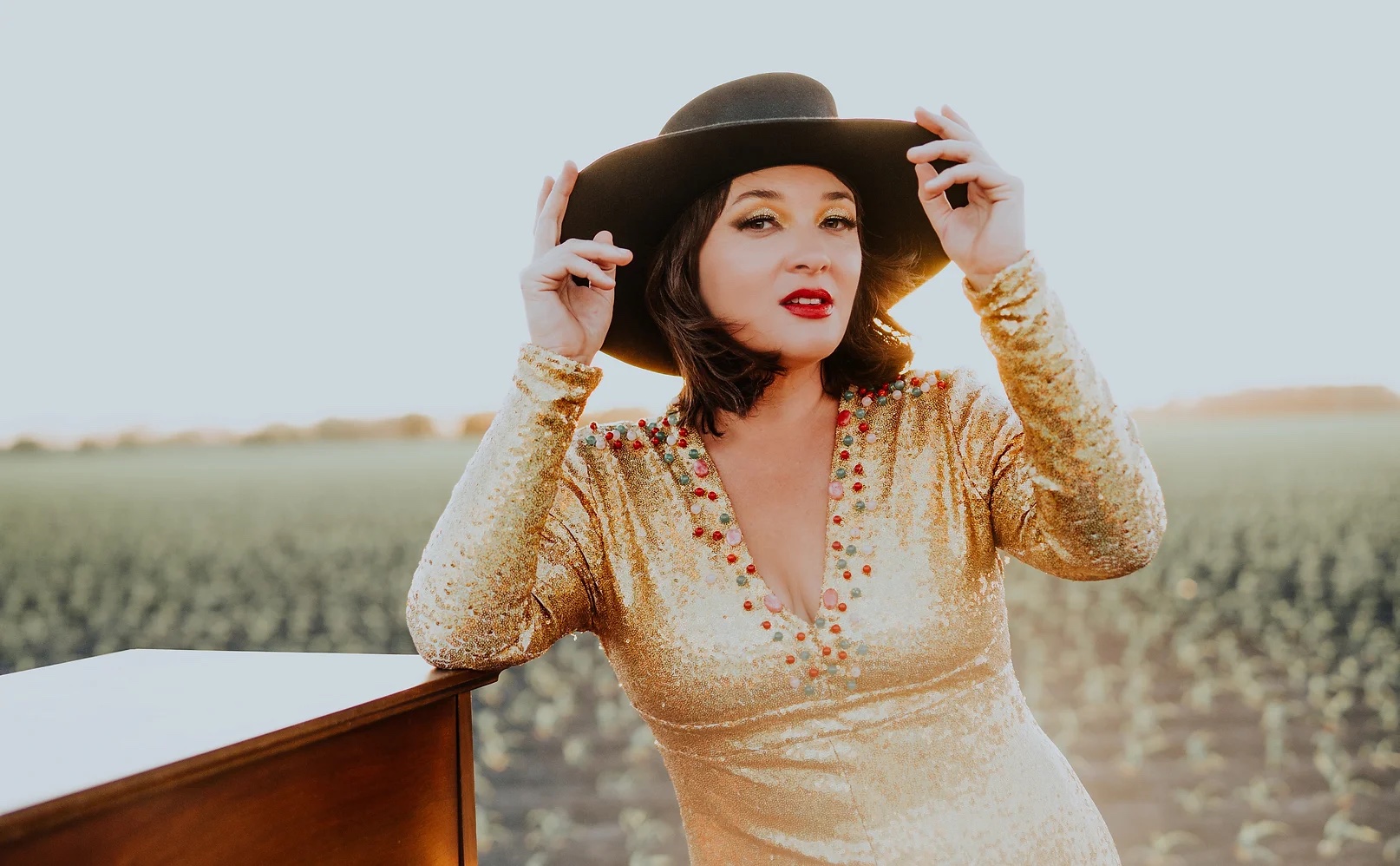
Bonnie Montgomery, Arkansas Talent Judge, vocalist
Bonnie Montgomery has always had a big voice. Raised on southern gospel, Texas swing, Delta blues, and Ozark bluegrass, she trained as an opera singer before launching her award-winning career in outlaw country. Paste Magazine praises her "timeless songwriting. Dale Watson calls her "a sophisticated badass who was born to sing." Even so, she's never sung quite as compellingly as she does on the eclectic, electrifying River.
"This is the most straight-from-the heart album I've ever cut", says the Arkansas native, who headed to Texas to record River with co-producer Kevin Skrla. "I've always been a multi-genre artist. I have a classical background, but I'm a big fan of soul music and rock, too. Country music was the soundtrack of my childhood. All of that went into River. Making that album felt like the first time I could be me, sing my heart out, and not worry about fitting into any specific box. It was pure. It was freeing."
Before a global pandemic brought her touring schedule to a halt, Montgomery spent an entire decade on the road, playing 200 gigs per year. From arena shows opening for indie-rock band The Gossip to dancehall dates with Ray Wylie Hubbard and Billy Jo Shaver, she sharpened her music onstage, carving out a blend of parlor songs, contemporary roots music, and timeless country twang. She stayed busy offstage, too. Billy Blythe, her original opera about Bill Clinton's childhood in Arkansas, received praise from The New Yorker and The Economist in 2016, while albums like 2018's Forever found her bridging the gap between modern-day Americana and old-school country western music. The hard work paid off. A perennial winner at the annual Arkansas Country Music Awards, Montgomery was named "Entertainer of the Year" in 2020, "Americana/Roots Artist of the Year" in 2019, and both "Best Americana Artist" and "Best Female Vocalist" in 2018. She also won big at the Ameripolitan Awards, being crowned "Outlaw Female" in 2016.
Everything changed in 2020, of course. Montgomery's career had recently turned a new page with "You Can't Shake" and "Just Your Style", two songs that found her collaborating with Rosie Flores and receiving heavy airplay from Sirius XM's Outlaw Country. As the world began to shut down, though, so did Montgomery's own body. She'd been a road warrior for years, burning the candle at both ends, compounding the trauma of a childhood airplane accident — the infamous American Airlines Flight 1420, which crashed in 1999 with a teenaged Montgomery on board — with an endless string of long shows and longer drives. Worn down, she began looking far beyond western medicine for relief. She fasted. She became a reiki master. She also found time to play the piano, an instrument she'd studied so heavily during her childhood in White County, Arkansas. As the healing process began, Montgomery started writing new songs, embracing the operatic side of her voice along the way. River took shape during that time of recuperation and reflection.
"Music is such a healer", says Montgomery. "I'd been feeling adrift, and making this album felt like a reclaiming of my power. It was very empowering to get into the studio at that time, and realize I have this outlet, this voice, this way of expressing all of my pain".
With its unflinchingly autobiographical songs, River doesn't pull any punches. It also doesn't limit Montgomery to the country-leaning sounds of her earlier work. The psychedelic "Leon" mixes cosmic guitar textures with lyrics about Montgomery's grandfather. The cinematic piano ballad "No Way Around It" tells the story of a parent's addiction. "I'll Know" channels the classic 1970s folk-pop of Carole King's Tapestry, while "I Was Fine" — whose pedal steel guitar and nostalgic strings pay tribute to honky-tonk hero Ray Price — finds its creator heartbroken and hollow after a breakup. "River", the album's tour-de-force title track, is one of several tributes to Montgomery's father, and she sings it like a songbird unleashed, combining the powerhouse poise of Aretha Franklin with the vocal techniques of her classical training. It's that ability to bridge the gap — between soul singing and operatic bombast; between rootsy textures and multi-genre flourishes; between the trauma she's overcoming and the bright horizon she's moving toward — that makes Montgomery's River so vital and versatile.
Montgomery recorded River on a sod farm in Dayton, Texas. Her longtime collaborator and co-producer, Kevin Skrla, had built Wolfe Island Recording Co. in the farm's barn, and the two pulled long hours in the studio, creating the bulk of the album themselves. They took inspiration from acts like Bob Seger, Elton John, and Linda Ronstadt, crafting a warm, widescreen sound that explored the grey areas between genres. Classical violinist Geoffrey Robson paid a visit to the studio, taking a break from his gig as conductor of the Arkansas Symphony to record the album's string arrangements. Jimmy Daddy Davis and Whitney Rose also stopped by to add vocal harmonies. After the tracking was complete, they turned to Willie Nelson's team, tapping Steve Chadie to mix the sessions and recruiting Terra Nova Mastering's Jerry Tubb to master the album.
Dreamt up by a versatile musician whose songwriting is every bit as eclectic as her background, River flows freely from one format to the next, blending those textures together into something fluid and forceful. It's the crystallization of a sound Montgomery has been creating for years. "Opera and country have a lot in common", she notes. "They both talk about sex, lies, love, and murder. Opera's subject matter is pretty trashy, when you look at it. In my songs, I like to depict the big moments, the big energy, and build things to a crescendo. That happens in opera. It happens in country. And it's happening in my career, too, with River".

